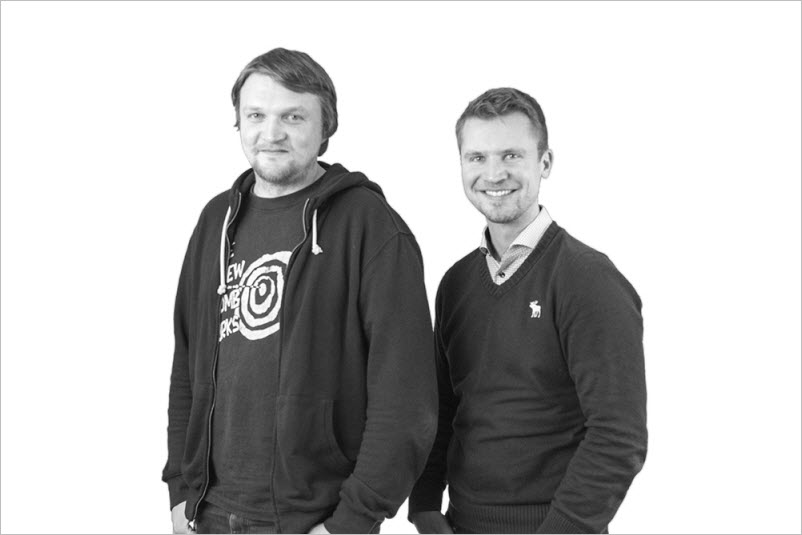| Views: | 5730 |
| Number of votes: | 6 |
| Average rating: |
EMVP Q&A on Cloud deployment
Everything you want to ask about Cloud
What are the main differences between running Episerver Digital Experience Cloud Service and hosting your own solution? We spoke with two EMVPs (Episerver Most Valuable Professionals) to learn about their experiences. Ted Nyberg is CEO of Ted & Gustaf, and Johan Kronberg is a software architect at NetRelations.

Johan Kronberg (left) and Ted Nyberg
What's the main difference between running Episerver Digital Experience Cloud Service and hosting a solution yourself?
Johan: That Episerver hosts the entire platform for you, and makes sure it's always up and running. It's basically platform as a service.
Ted: Exactly, you don't have to think about servers per se, scaling and deployment are part of the service.
For what projects have you used Digital Experience Cloud?
Johan: We've used it for the city of Nacka's upcoming website and intranet, and another client as well.
Ted: We're currently working on a new online platform for a multinational customer. It's not launched yet, but the environment for development and testing is up and running.
What are the benefits of the Cloud for customers?
Johan: The biggest benefits we've seen have been better response time and uptime, compared to traditional hosting. I'd say the included CDN service and deployment process are the main reasons for this.
Ted: With traditional hosting our client had to pay for high-capacity servers that can handle peaks in sales, even though that capacity isn't needed for most parts of the year. In Digital Experience Cloud Service, capacity can scale with demand.
What's your experience of running several websites on the same license?
Ted: Digital Experience Cloud Service is great if your websites use the same application and database. Such as our client's websites in our current project, which will technically be the same in all countries.
Johan: Yes, but if your websites use different applications you might be better off buying a license for each. Not just to make it easier for developers – sharing a license can also be confusing for editors, who will see content and information from other websites.
Some developers wonder why they can't access the servers. Why is that?
Ted: I know some people think it's strange, but if Episerver is to uphold their SLAs, they must also be in control of what happens behind the scenes.
Johan: Episerver has staff that makes sure that your website is always up and running. I think that outweighs the possible disadvantages of not having direct access to the server.
Since developers can't access the servers, they have to ask Episerver to deploy new code. How does this affect development?
Johan: One thing to keep in mind is that it takes longer to deploy new code. First you must contact Episerver, who creates a backup of the existing environment, moves the code to preproduction, and run tests to make sure your code works. So, things you want to be able to change quickly, for example certain JavaScript, CSS and things like texts on buttons, should not be part of the deployment package, but placed in the edit interface.
Ted: Some people might find this process annoying, but I think it's a good thing. It guarantees that deployments are always done in a consistent, and rather sophisticated, manner. Since Episerver reviews deployments before go-live, and takes responsibility for the SLA, deployments can be a less dramatic experience for both customers and developers.
Johan: Yes, and if you've done something really stupid, it's almost guaranteed to be discovered.
Digital Experience Cloud Service runs on Azure. Does that mean I can combine Digital Experience Cloud Sevice with all other Azure services?
Ted: Some Azure services are integrated into Digital Experience Cloud Service, but not all. If you want to use other services than those already available, you can ask Episerver to create a special packaging of Digital Experience Cloud Service for you. Or, you could pair the standard packaging of Digital Experience Cloud Service with Azure services of your own.
Johan: Whichever option you choose, I recommend discussing it with Episerver first.
Do you plan the architecture differently when using Digital Experience Cloud Service, as opposed to hosting a solution yourself?
Johan: Yes, given that Episerver takes responsibility for everything we put into Digital Experience Cloud Service, we try to put as much as possible there instead of hosting parts separately.
Ted: I agree, projects we host ourselves generally have a more decentralized structure.
Want more information on Cloud?
Join the DevChat on March 30 to learn the benefits of running Episerver on Azure and using Episerver Digital Experience Cloud Service.
